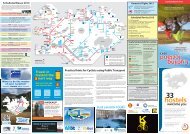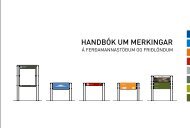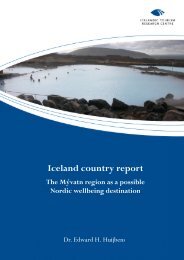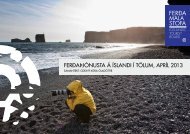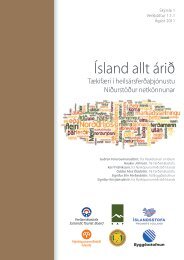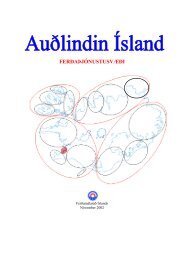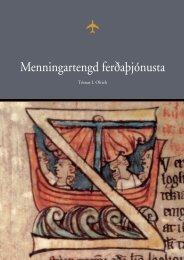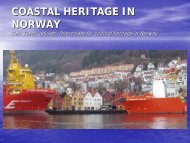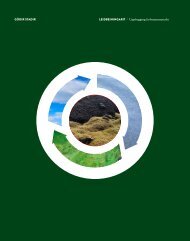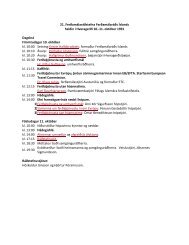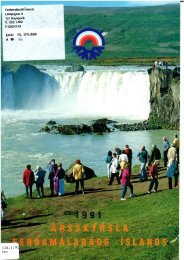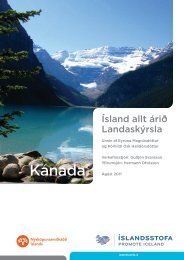Untitled
Untitled
Untitled
You also want an ePaper? Increase the reach of your titles
YUMPU automatically turns print PDFs into web optimized ePapers that Google loves.
these social relations are often mediated by technologies like mobile<br />
phones, aeroplanes and computers.<br />
One clearly identifiable line of contemporary reasoning about<br />
tourism thus suggests that “[t]here is much less ‘tourism’ per se that occurs<br />
within specific and distinct kinds of time-space” (Urry 1990/2002, p. 161).<br />
This again means that the line between the everyday and the touristic, the<br />
mundane and the exotic, has become increasingly socially and<br />
geographically blurred. Regarding tourism theory this puts a serious<br />
question mark around traditional definitions of tourism as travel between<br />
an exotic extraordinary other and mundane home geographies and<br />
everydayness of social life. This spatial and theoretical binary, by which<br />
the tourist experience has been separated from everyday life, has been<br />
challenged since the 1990s (Uriley 2005) and is now increasingly<br />
considered obsolete. In the words of Franklin:<br />
the everyday world is increasingly indistinguishable from the touristic<br />
world. Most places are now on some tourist trail or another, or at least,<br />
not far from one (Franklin 2003, p. 5).<br />
According to the likes of Franklin we are, however, not only living<br />
in societies where touristic spaces are folded and blurred with the<br />
everyday. Instead of being an exclusive reservoir of escape from the daily<br />
grey routines of work, tourism has become a social and cultural<br />
characteristic of life in consumer society producing the by now well<br />
known euphemism “we are all tourists now”. It does not matter whether<br />
we go shopping in our own home environment or go vacationing since the<br />
social world itself, regardless of where it takes place, has become<br />
“touristified”. In other words, the term “tourist” is cut loose from its sole<br />
reference to people spending vacation time on the beach, or hiking in the<br />
mountains while on holiday elsewhere. To be a “tourist” thus becomes:<br />
a metaphor for the way we lead our everyday lives in a consumer<br />
society. So rather than being an exceptional or occasional state of being<br />
in modern societies, or even as some have said, an escape from it, the<br />
manner of the tourist has come to determine a generalised stance to the<br />
world around us (Franklin 2003, p. 5).<br />
There are many roots to this way of conceiving, understanding and<br />
explaining contemporary relations between tourism and the social world,<br />
but one of the most important in tourism theory leads us directly back to<br />
MacCannell. Indeed, the central organizing metaphor of his classic The<br />
63



